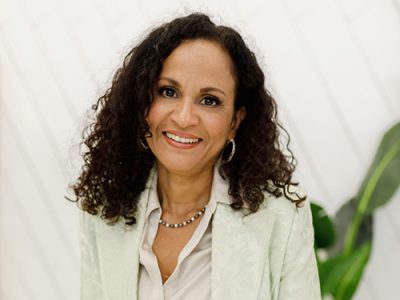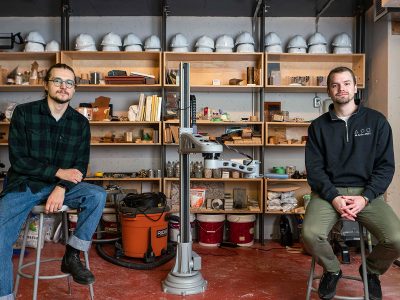By Joseph Mathieu
Living in one of Carleton’s residences isn’t just an experience, it’s an education.
It’s where 3,600 Carleton University students call home. Nine buildings offer a range of preferred living arrangements, from single-gender suites in Prescott to more traditional rooms in a variety of co-ed options.
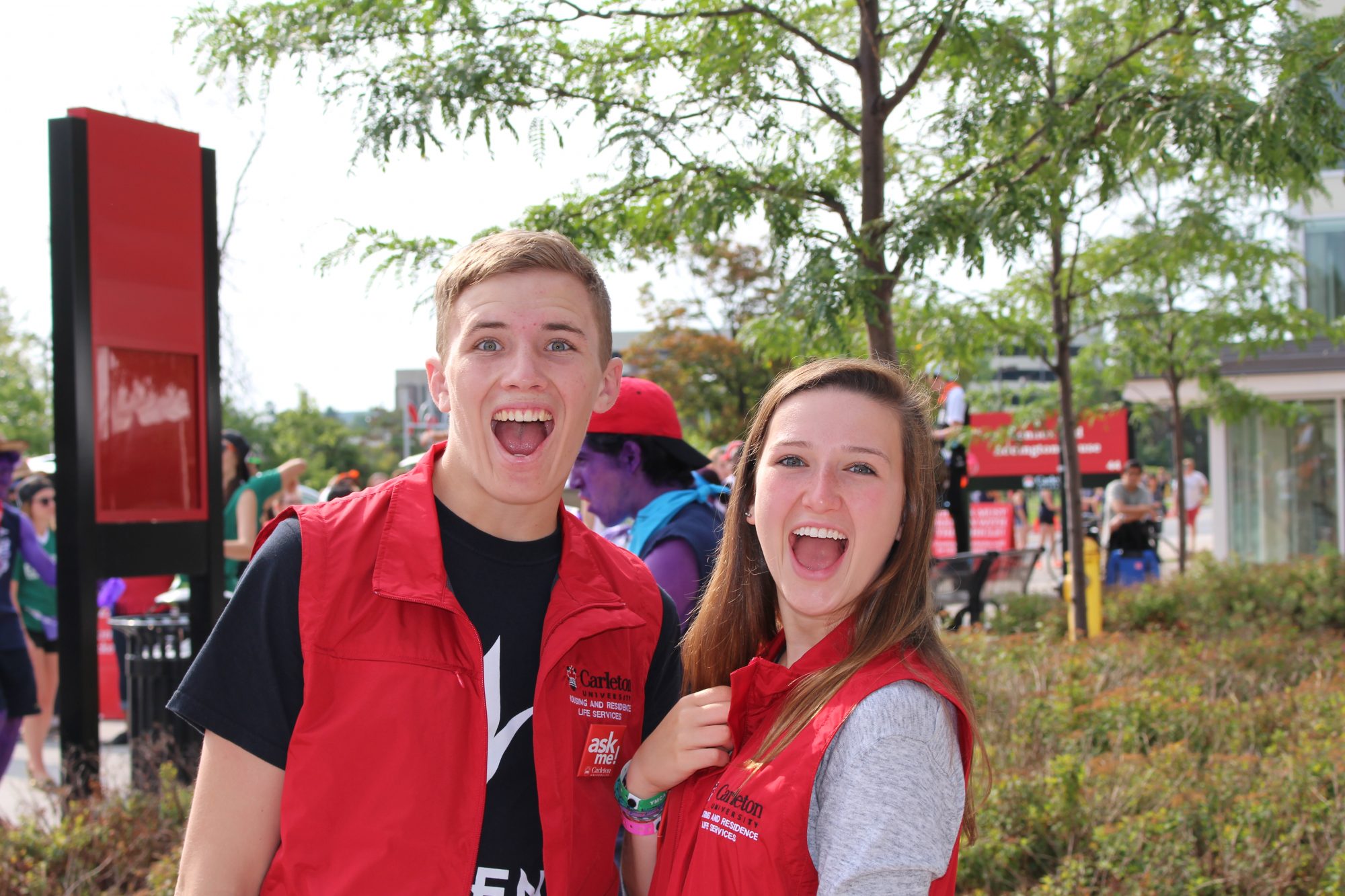
Some floors in Glengarry are themed to group people into communities that share common interests, like healthy and sustainable living, entrepreneurship, or building a robot.
It’s where students recharge. Residence is minutes away from classrooms and labs, and the commute to the dining hall and residence commons is even shorter. Friends and floor mates regularly congregate in living areas to catch up, compare notes and make plans. Faculty members come by to give informal talks on straightforward but essential subjects like studying math efficiently, budgeting properly and becoming more resilient.
And Carleton’s Housing and Residence Life Services offers a support system designed to give each resident the chance to learn about themselves and their interactions with others, helping to build leaders in the process.
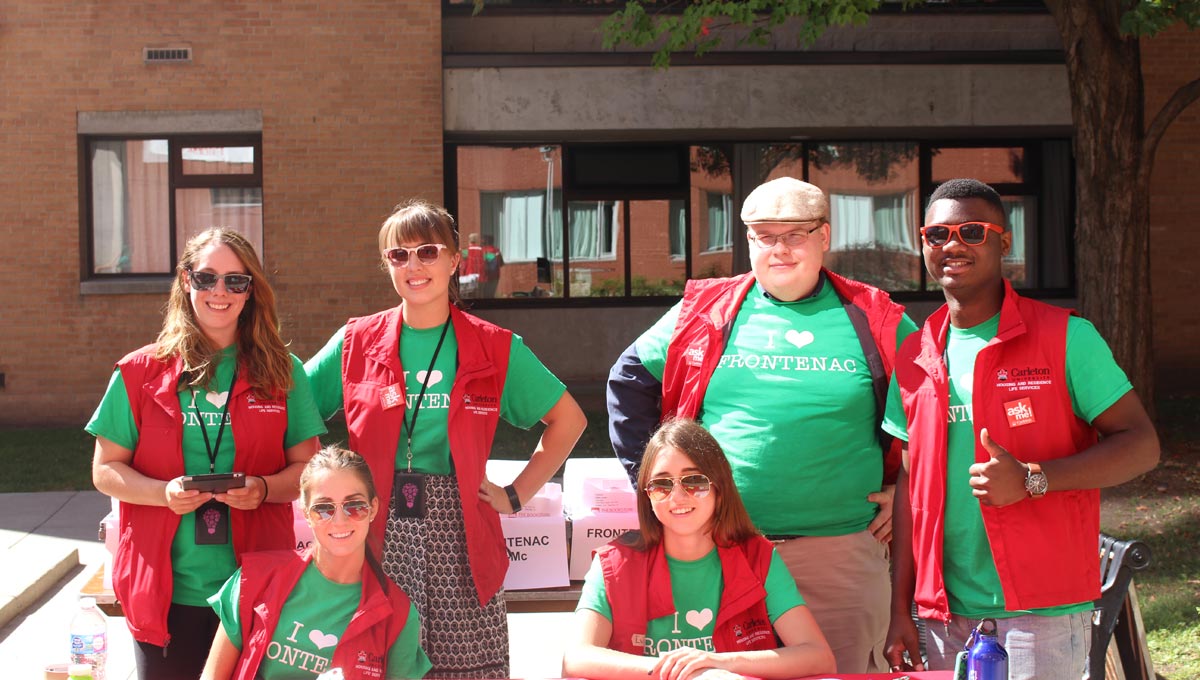
Carleton’s Residences Prepare Students for Independence
“If anything, I think residence is to prepare you for living out on your own, independently,” says Bailey Kew, a community adviser and fourth-year student of Public Affairs and Policy Management (B.PAPM). “A lot of learning comes from self-reflection and acknowledging responsibility for situations.”
As part of the community development team, advisers address issues and celebrate positive behaviour with an emphasis on respect.
“If you are falling behind academically or not behaving well in residence, and you are interested in the mentor program, you can be guided and helped on a regular basis,” says Kew.
There are also residence fellows like second-year B.PAPM student Fatemah Ebrahim, who shares the responsibility of hosting community meetings and events on a floor in Stormont, and developing leadership opportunities for 70 first-year students.
“We strive toward self-awareness, positive relationships, and community engagement from September to April,” she said, “and exactly as Bailey said, a lot of the stuff we do is to help them for their future.”
Fellows and advisers encourage students to reach at least one academic and one personal goal. For many first years, residence offers their first experience of communal living outside a family home. The inclusive environment inside a fun-loving community is a considerable help when trying to answer fundamental personal questions like: “What do I like most?” and “Who do I want to become?”
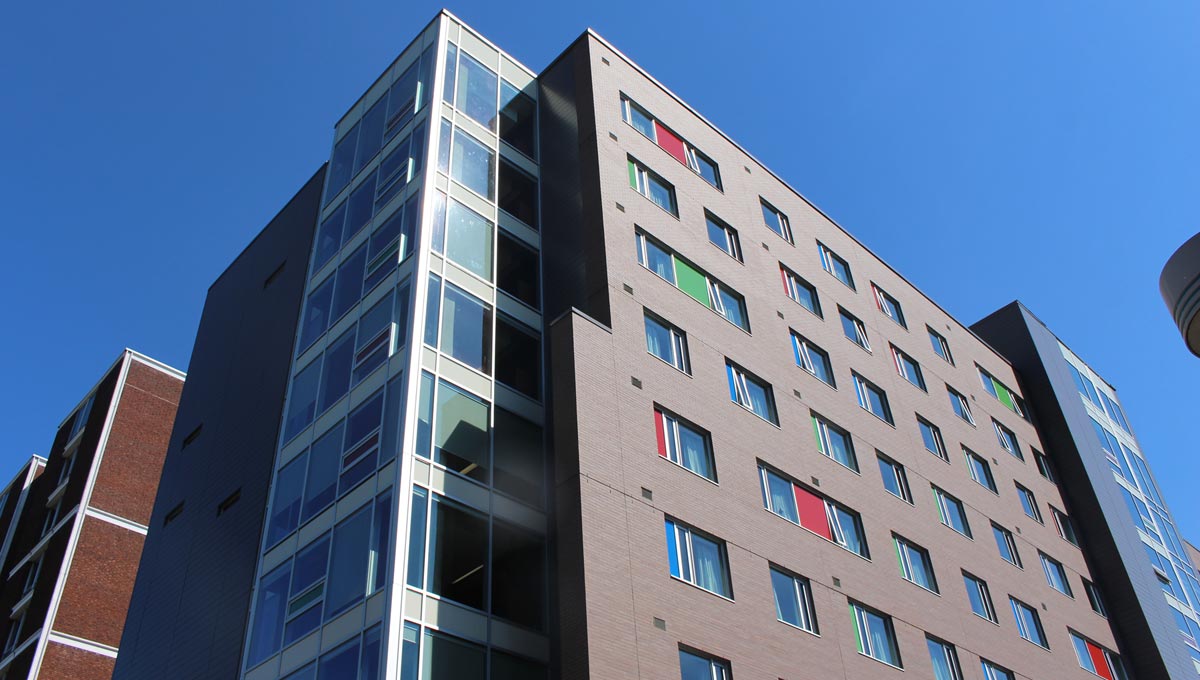
Friendships Can Last a Lifetime
It’s not uncommon for friendships formed in res during these formative months to last a lifetime.
Everyone needs time, experimentation and the chance to make some mistakes to acquire a sense of self and an idea of how to give back to a community.
Residence also encourages students to hold their own events. This year, Dundas resident Chris DeGagné, a transfer student from the University of Calgary in Computer Science, organized a movie theatre event and a laser quest.
“If they want to, people from other residences can join us, there’s freedom to meet new people on new floors.”
Stress buster events, spearheaded by fellows, also bolster the community around a universal challenge: cramming. Ice cream study breaks are coming up in April, and floors tailor their own stress relief into care packages of candy, teas and exam survival tips, or regular yoga breaks, depending on what each floor needs most.
“We have our lesson plans – a guideline, almost like your manual of what to do and how to help,” says Ebrahim.
“But there’s also a lot of freedom in the job to do it your own way and make it your own.”
Fellows regularly offer advice and mediation as needs arise, but often conflict can be resolved among students themselves. With the help of roommate agreements drawn up from templates in September, residents can hold themselves accountable to their commitments of mutual respect.
“I’ve seen people use their roommate agreements to solve a problem instead of having to see management or one of their res fellows,” says DeGagné.
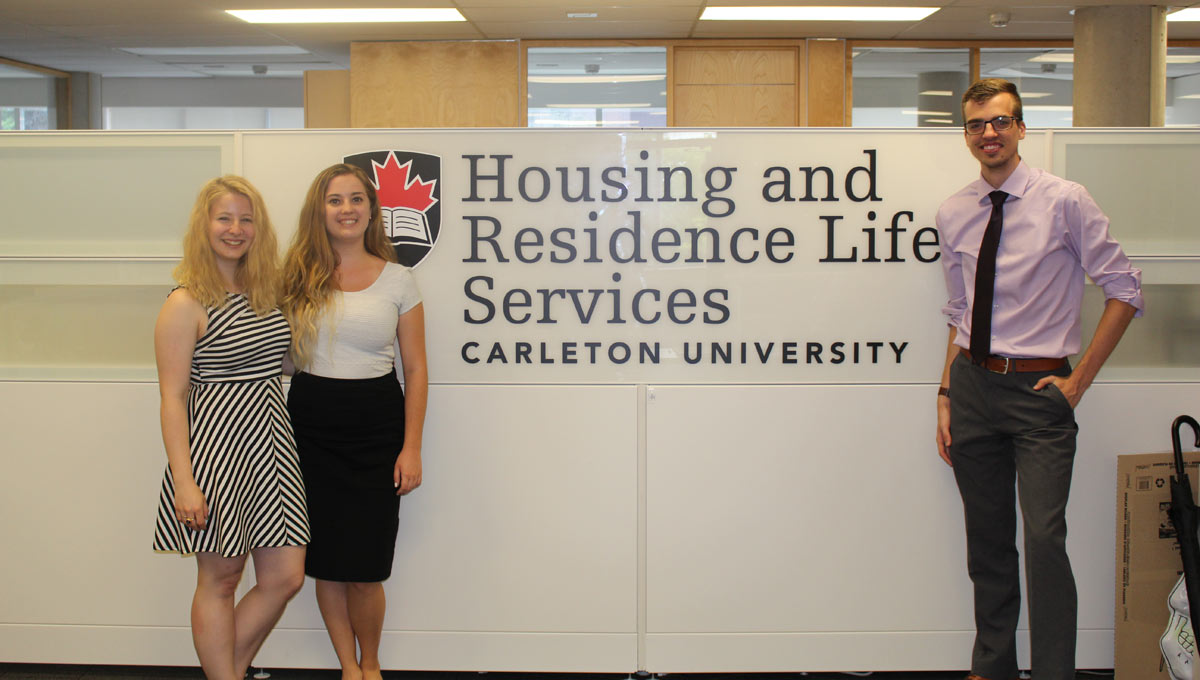
Flock Talks
Fellows also work hard to conduct one-on-one talks with their residents three times a year. Named flock talks, they are used to check in with each student at the start, middle and end of the academic year to help with challenges and to remind them of their importance in the community.
An overview of life in residence forms quickly from flock talks. What’s going on in a student’s life, how their joys and struggles are affecting work and relationships, allows Ebrahim and the other 90 res fellow to better serve their floors.
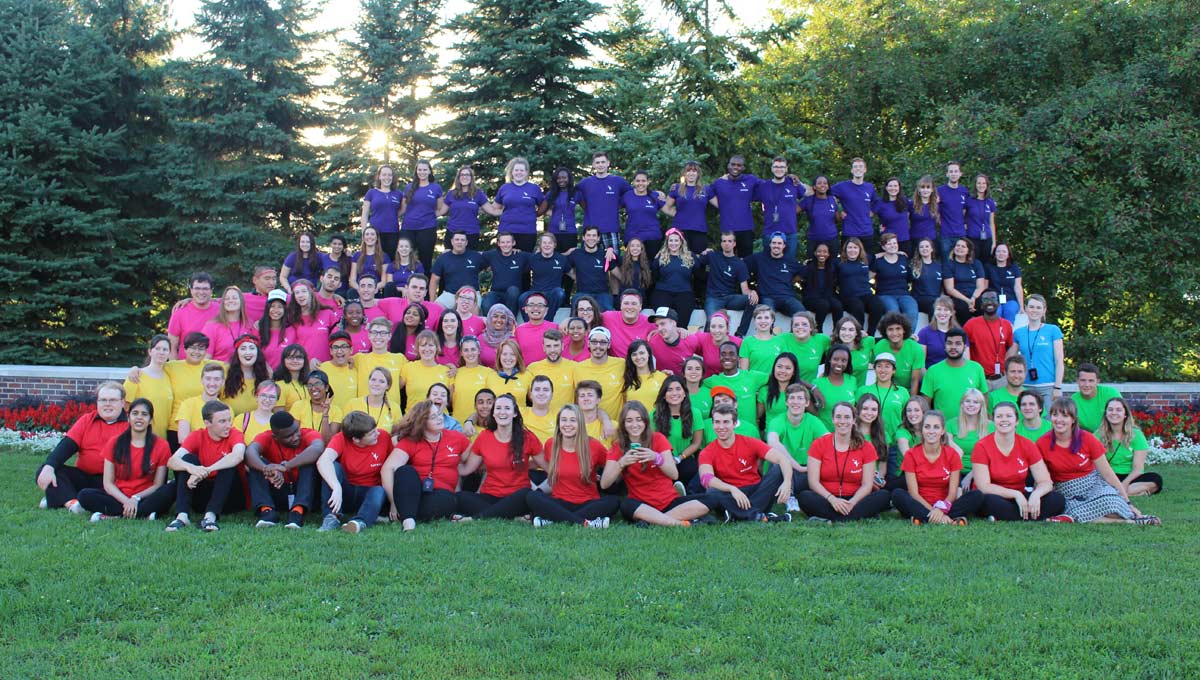
“Although it’s really hard for us to get a hold of students and handle 35 talks during exams, it’s also incredibly important to check in on someone during that time,” she says.
“The third round was super chill, to see how they’ve done, how they’ve grown, and hear about their experiences.”
Key questions in September (What do you want to get out of this year?) and in April (What did you learn about yourself?) serve as bookends to a year that just flies by. The department designs many meaningful talks, events and programs, and by end of spring term it adds up.
“We don’t do things just for the heck of it, but because there’s a purpose behind it. We help students achieve real outcomes,” says Ebrahim.
It’s all part of the education experience in this home away from home – gaining confidence and focusing on positive behaviour.
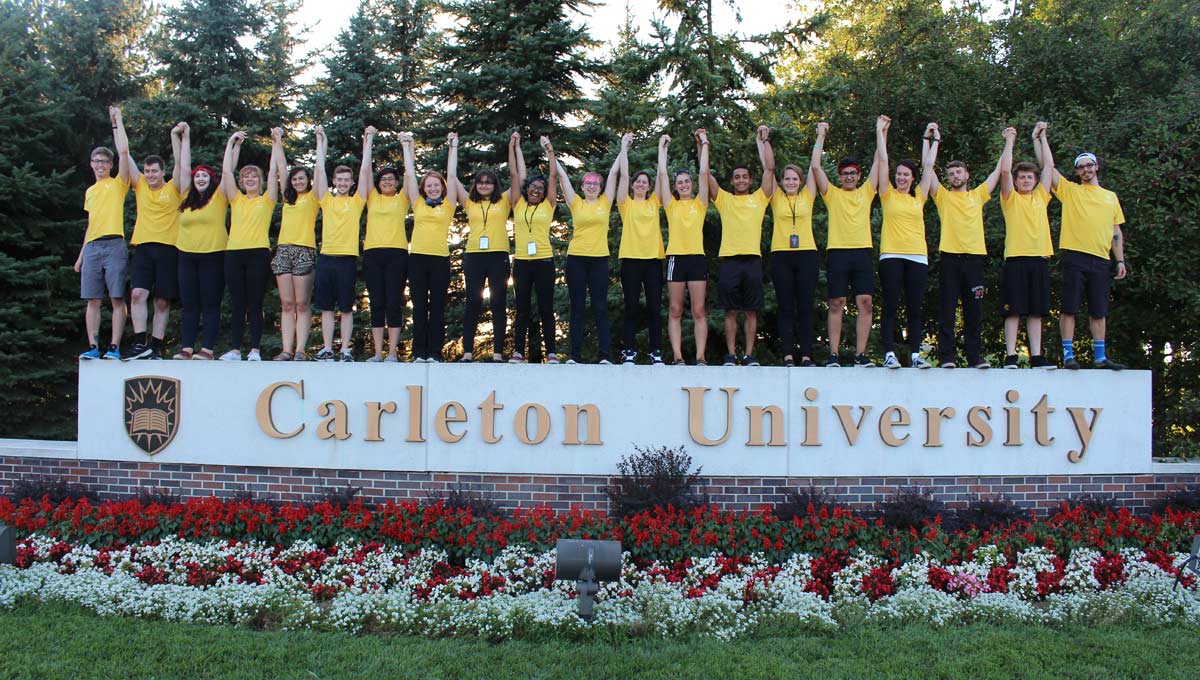
Thursday, March 30, 2017 in Buildings, Community, Student Experience
Share: Twitter, Facebook
